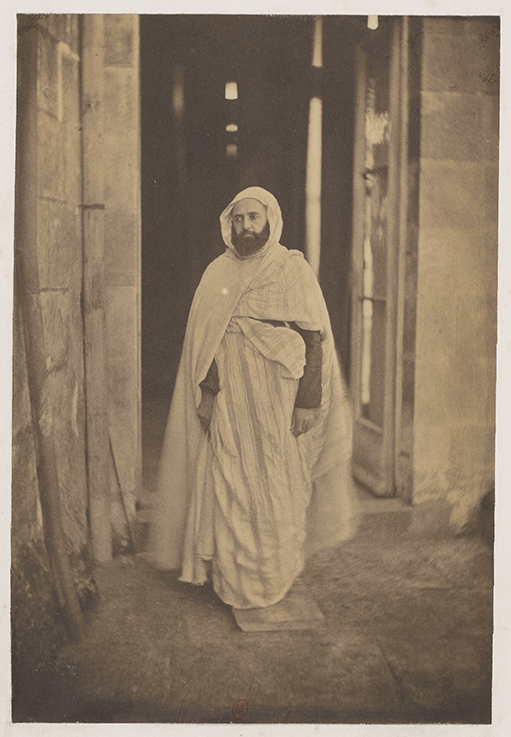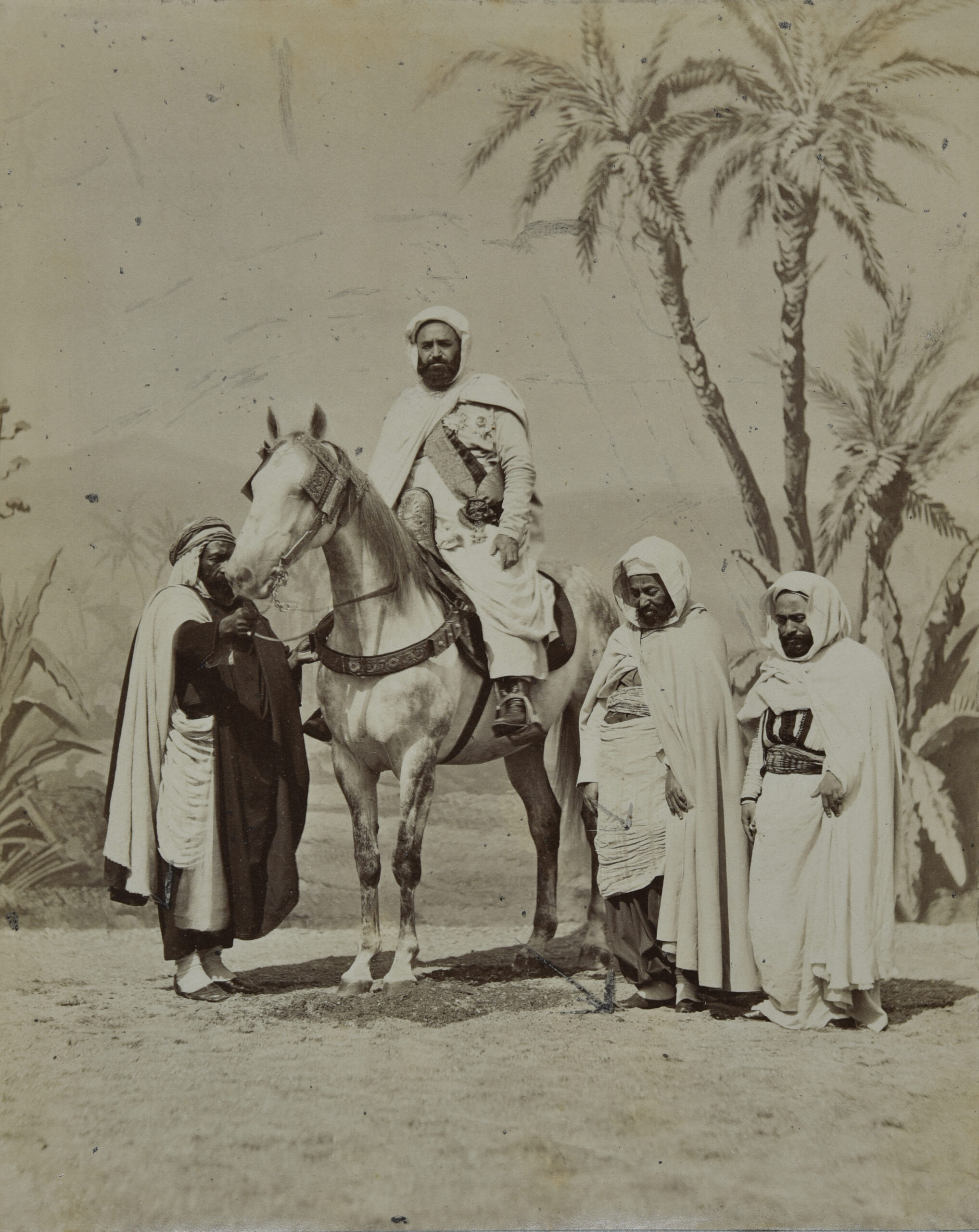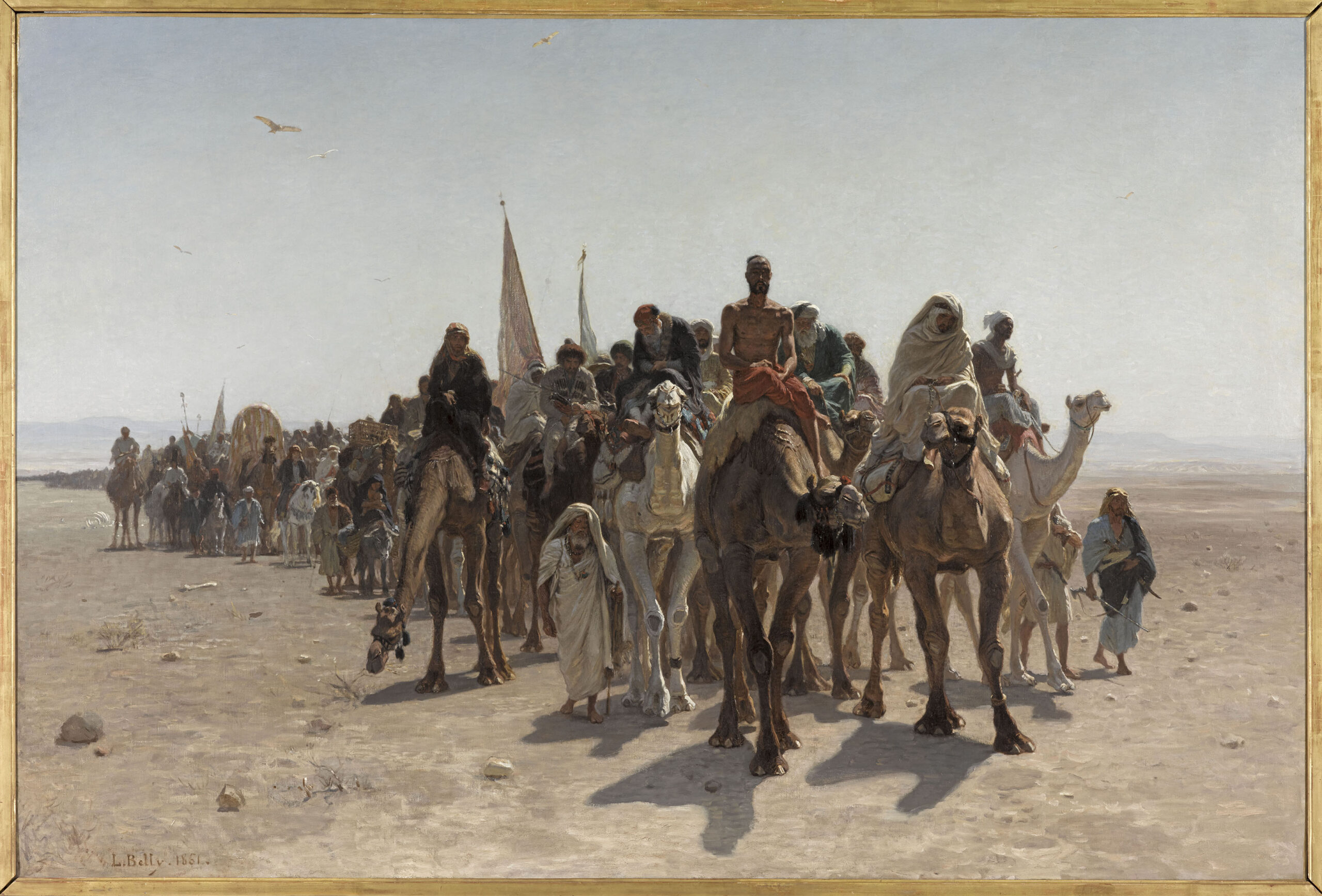Mucem (M.)
Why has the Mucem chosen to focus on the figure of Abd el-Kader for this new exhibition?
Florence Hudowicz (F.H.)
Through its programming, the Mucem has long been concerned with exploring and exhibiting the history of relations between the various shores of the Mediterranean, and this is obviously the case for the Maghreb and Algeria in particular. The “Made in Algeria” exhibition in 2016 was a milestone, and the “Algeria-France, the voice of objects” series of meetings, which has been held for five years now, marks a renewed desire to work on this relationship between Algeria and France, always in a bid to bring together outlooks and viewpoints, and personal life stories with a common history.
Camille Faucourt (F.C.)
One might think that the project is a part of the anniversary of Algerian independence, which will be sixty years old in 2022. Alternatively, that is an aspect of the context of the President of the Republic appeasement efforts regarding the colonial history between our two countries. But this project precedes all these considerations. The exhibition was born of a meeting between Father Christian Delorme, who has been interested in the figure of Abd el-Kader for some fifteen years, and Jean-François Chougnet, the president of the Mucem. They met in Amboise, the place of the Emir’s captivity, in 2019. The project came about from that time.
M.
Although he was a “warlord”, Emir Abd el-Kader appears as a conciliatory figure between France and Algeria…
F.H.
He did indeed work towards reconciliation, even if in his time the question was not quite set in these terms. This began, however, with the war that France unleashed in 1830, by making the regency of Algiers capitulate, and then by extending the conquest to other territories, by means of arms. Abd el-Kader then took the lead in the resistance for the western regions, and this lasted for fifteen years. The French military superiority, which had increased tenfold from 1841, led him to lay down his arms in 1847.
Initially, he had received a solid education to become a religious scholar, within a Sufi brotherhood in the south of Oran. This education was to make him accomplished in theology, philosophy and science as well as in horsemanship and weaponry. His father took him to Mecca and Baghdad when he was only 18 years old, thus exposing him to the world at an early age. This is part of the reason why his abilities fascinated the French officers who met him.
After defeat and captivity, he was finally able to retire – after a passage through Turkey – to Syria, where, in 1860, he actively contributed to saving several thousand Christians in Damascus from massacre. His prestige then spread throughout Europe. At the same time, he took an interest in the Suez Canal project, which was in the making, after meeting Ferdinand de Lesseps, sharing with him the conviction that by opening up a new route for trade between East and West, it would be possible to rebalance relations between these two worlds and achieve a form of harmony. This is the visionary aspect of the man. We can therefore say that, for his time, even if things were not thought of in these terms, Abd el-Kader was a figure of mediation and reconciliation. He experienced dialogue in all its stages. We hope to see the exhibition travel to the other side of the Mediterranean, to be presented in Algeria.
M.
What remains of him in French memory? And what about in Algeria? In these two countries, are the views on Abd el-Kader different?
C.F.
The Emir is perceived very differently in these two countries. In France, Abd el-Kader remains rather unknown. One could say that he is largely forgotten. And when he resurfaces, it is through the figure of the vanquished who rallied to the so-called French spirit: a vision that is somewhat dated since it comes to us from the second half of the 19th century, and was transmitted to us via school textbooks of the following century, which presented him as a warlord who had accepted the legitimacy of conquest, so that he became an ally of France. He indeed had good relations with Napoleon III, and the French did not hesitate to reuse this friendship to turn it into a form of vassalage: Abd el-Kader would thus be the defeated resistance fighter who had a sincere admiration for France… It is this image that has remained in the French imagination.
In Algeria, on the other hand, Abd el-Kader is presented as the fighting emir, the resistance to the conquest, the founder of a first national state. In 1966, President Boumédiène had the Emir’s ashes returned to Algiers, and for this he organised a ceremony with great pomp: the aim was to establish him as a central figure in Algerian history and the precursor of national identity. To say that he “founded the Algerian state” is a bit of an exaggeration, but he was the first to create autonomous capitals, to bring together institutions (including a library), and to mint money – and all of this outside the Ottoman Empire. But to stop there would be to forget a whole part of his life. As Florence Hudowicz reminded us, his training destined him for a religious career, and not for that of a statesman or a fighter. After 1860, moreover, he came closer to the spiritual centres of Medina, Mecca and Damascus. He continued his Sufi mysticism. He passed on his exegesis of the Koran to his students and immersed himself in literature… All these facets of his personality are relatively unknown in Algeria.
F.H.
In the 19th century, Abd el-Kader was an immensely well-known figure in France. Even after his death in 1883, he continued to appear in school textbooks for many years, until the 1930s in fact, which marked the centenary of French Algeria and the heyday of France as a colonial empire. After independence in 1962, Abd el-Kader became, in a way, Algerian again and the founding hero of the Algerian nation. In France, it is becoming difficult to teach about Algeria. What can we say about this historical figure today? This question, of the place of this man at the heart of the complexity of history, was central in the constitution of the project.
M.
The exhibition is based on the most recent research. What is new from a scientific point of view? And what are the discoveries about him that have impressed you most?
C.F.
This exhibition is being held almost twenty years after the last exhibitions on the Emir, which took place in 2003. In the meantime, new research by the historian Ahmed Bouyerdene has been published, and a travelling exhibition presented by the Adlania Foundation and presided over by Sheikh Khaled Bentounes, has made it possible to unveil previously unpublished objects related to the Emir. These different works have enabled us to go further in our understanding of the man, who is much more complex than he appears. Abd el-Kader is a multi-faceted character. The aim of this exhibition is to bring together a large number of objects and archives in order to cross-reference sources from both sides of the Mediterranean and thus shed light on this character who seems to have had a thousand lives, a man constantly on the move, who travelled far and wide, and who spiritually, thanks to his erudition, constantly learned and evolved. Abd el-Kader was one of the great minds of his time.
F.H.
My main discovery about him is the book that he spent part of his life writing, The Book of Haltes, which is a collection of thoughts and experiences in which he refers to the great Middle Ages thinker, Ibn Arabi, a Muslim scholar from Al-Andalus. This long-term resonance with this mediaeval scholar, who looked to the past to think about the present, remains fascinating. This book, which we are showing in the exhibition in its Arabic version, is a moving sign of these networks and ramifications of thought and exchange that cross time and space, and are perpetuated. At the beginning of the 19th century, in a corner that seemed remote to French eyes, one could be and become a character of extraordinary erudition! Pre-French Algeria certainly lacked modern technology, but it was not the “Dark Ages” either. More generally, what was fascinating was to search for and track down all the traces that would allow us to better define the contours of a complex character, in all the paintings, objects and archives that we were able to consider – all these investigations that also put us in contact with many people and which give all their flavour to each of the exhibited objects.
M.
What will we see in this monograph on Abd el-Kader?
C.F.
We wanted the exhibition to reflect the richness of the man’s journey. We struggled to create a coherent whole that brought together such a great diversity of objects. We are proud to have been able to bring together works that have never travelled, such as the paintings in the Musée de Versailles, and archives that have never been used before. For example, the documents kept at the Archives Nationales d’Outre-Mer have enabled us to get a very close look at the period of the Emir’s internment in France, which is very well documented thanks to military reports, instructions for soldiers, invoices, and letters from visitors who were able to get close to Abd el-Kader during this very difficult time for him.
F.H.
We were not able to bring in The Taking of the Smala – a 21 x 5.5 metre canvas kept at the Musée de Versailles and much too large to be transported. But we turned this disadvantage into an opportunity by creating a multimedia device that will allow the public to be transported “into” the work, and thereby see what it shows – and also what it doesn’t.
M.
In what way does Abd el-Kader’s journey have exemplary value?
C.F.
He is a man who never strayed from his original path, he was always rooted in the Muslim faith and its traditions. Let us remember that his authority in Algeria was based on Sharia – Islamic law, but this did not prevent him from participating in inter-faith dialogues with representatives of Catholicism or with members of the Protestant community when he was imprisoned. He had in-depth theological discussions with them. He was a man of great religious tolerance. He was also a man of genuine political prescience. When he was in Damascus, he saw the tensions between the Jewish, Christian and Muslim communities and warned the Ottoman governor of Damascus, but nobody listened to him. It was therefore he and his companions who took up arms to defend the Christians. Abd el-Kader had registered that History was on the march. The Europeans were present in the Orient and it was necessary to work with them. His integrating elements of modernity and Western technology clearly made his character stand out in the Muslim world of the 19th century.
F.H.
Firstly, he had a remarkable career, due to his intrinsic capacity for action, but also thanks to his curiosity and power of analysis, particularly with regard to the modernity of his adversary, which fed his reflections. In the Algeria of his time, which was far from being unified, he was not always able to achieve a generalised alliance, and his renunciation of the war is still at times experienced as a capitulation and betrayal. Nevertheless, his exceptional story remains if we follow all its stages and evolutions – a wealth of learnings. Lastly, his capacity for negotiation, his intelligence about the strengths and weaknesses of human societies, and his desire to go beyond all too close horizons, have a value of example, in a commitment of oneself to the world and a curiosity about others.






